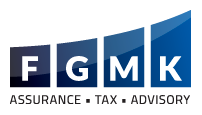On June 5, 2019, Governor Pritzker signed into law a $40 billion state spending plan following the conclusion of the state legislative session. One key state and local change resulting from the recent legislative session was the expansion of the manufacturing sales and use tax exemption. Intended to ameliorate the effects of the now repealed Illinois Manufacturer's Purchase Credit, the expansion builds on the current Illinois law which gives manufacturers a sales tax exemption for purchases of machinery and equipment used in manufacturing or assembling.
Qualification for Exemption
Illinois Department of Revenue Regulation 130.330 provides an exemption from sales and use tax for manufacturing machinery and equipment that will be used by the purchaser, or lessee of the purchaser, primarily in the process of manufacturing or assembling tangible personal property. The critical issues addressed by the regulation include the definition of manufacturing and assembling and the type of machinery and equipment that qualify.
Manufacturing and Assembling
The manufacturing process is the production of any article of tangible personal property, whether a finished product or for use in the processes and procedures commonly regarded as manufacturing, processing, fabricating or refining that changes some existing material or materials into a material with a different form, use or name.
The scale, scope, and character of a process or operation will be considered in determining whether a process or operation is regarded as manufacturing. Manufacturing does not include extractive industrial activities, logging and drilling for oil and gas, agricultural or horticultural activities, or the preparation of food and beverages by restaurants.
Assembling refers to the production of any article of tangible personal property, whether a finished product or used in the process of manufacturing or assembling a different article of tangible personal property by the combination of existing materials in a manner that results in a material of a different form, use or name.
The product produced as a result of the manufacturing or assembling process must be for sale or lease. Any manufacturer or assembler who uses a significant portion of the output of its machinery or equipment for internal consumption or nonexempt use, will not be eligible to claim the exemption. The purchaser must be able to establish through adequate records that the machinery and equipment is used over 50 percent in an exempt manner.
Machinery and Equipment
Only the purchase and use of machinery and equipment used in manufacturing or assembling are exempt from sales and use tax.
Machinery is defined as major mechanical machines or major components of such machines contributing to a manufacturing or assembling process. Machinery includes the machinery and equipment used in the general maintenance or repair of exempt machinery and equipment.
Equipment is defined as any independent device or tool separate from any machinery but essential to an integrated manufacturing or assembling process. This includes computers used primarily in operating exempt machinery and equipment in a computer-assisted design or manufacturing system.
Extension to Graphic Arts Production
Beginning July 1, 2017, the manufacturing of machinery and equipment exemption includes machinery and equipment used primarily in graphic arts production. Manufacturing of graphics arts includes printing by methods of engraving, letterpress, lithography, gravure, flexography, screen, quick and digital printing. It also includes the printing of manifold business forms, blankbooks, loose-leaf binders, books, periodicals, and newspapers.
Graphic arts equipment includes equipment used in the activities of binding, collating or finishing the graphic arts product and equipment used to package the product after printing, binding, and finishing.
Expansion of Existing Exemption
Effective for purchases on or after July 1, 2019, the new tax law includes "production related tangible personal property" in the definition of machinery and equipment for purposes of the manufacturing sales and use tax exemption. Production related tangible personal property, in light of the expanded law, includes the following in its definition.
All tangible personal property that is used or consumed by the purchaser in a manufacturing facility in which a manufacturing process takes place and includes, without limitation, tangible personal property that is purchased for incorporation into real estate within a manufacturing facility. Examples of such equipment includes:
- Carts and conveyors'
- Cutting equipment, e.g. knives, and tool sharpeners;
- Cranes/Hoisting equipment;
- Dollies/Hand trucks;
- Forklifts and dock loading equipment;
- Labels/identification/marking products;
- Pallets and pallet jacks;
- Platforms and scaffolding;
- Shelving and storage racks/containers;
- Tool sheds and work benches; and
- Training/safety videos. Equipment and references materials.
Supplies and consumables used in a manufacturing facility including:
- Fuels;
- Coolants;
- Solvents;
- Oils;
- Lubricants;
- Adhesives;
- Hand tools;
- Paint/coating treatment products;
- Protective apparel;
- Fire and safety equipment used or consumed within a manufacturing facility; and
- Tangible personal property that is used or consumed in activities such as research and development, preproduction material handling, receiving, quality control, inventory control, storage, staging, and packaging for shipping and transportation purposes.
Eligible production related tangible personal property for sales and use tax exemption must meet the existing requirements for the manufacturer's sales and use tax exemption. Specifically, the production related tangible personal property must be primarily used in manufacturing and assembly, as described.
In response to the expansion of the exemption, the Illinois Department of Revenue ("IDOR") has revised Form ST-587 – the Exemption Certificate used for manufacturing. The Illinois Department of Revenue will issue rules to implement and administer the exemption for production related tangible personal property.
If you have additional questions, please contact FGMK's State and Local Tax ("SALT") team.









